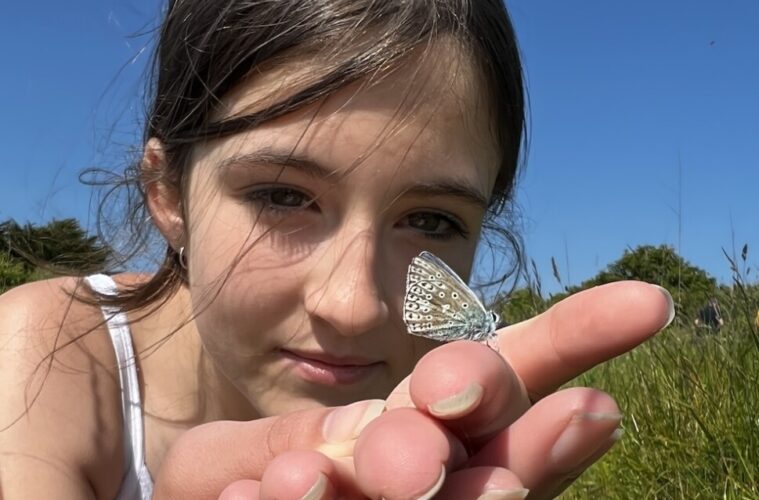Last summer, citizen scientists in Wiltshire spotted 45,916 butterflies and day-flying moths during the Big Butterfly Count. Today, wildlife conservation charity, Butterfly Conservation, is issuing a rallying cry to people in the region to help beat that this year.
In 2023, people across Wiltshire did 3,017 Big Butterfly Counts, with the Red Admiral taking the top spot for species sightings. Scientists are hoping even more people will take part to help find out what’s happening with the region’s butterflies before the Count ends on Sunday 4 August.

It’s more important than ever that people take part this year. After analysing 50 years of data, researchers have discovered a clear northward spread for many species, including common garden favourites the Peacock, Comma and Holly Blue, the result of climate change creating warmer habitats for them to survive in.
Butterflies are indicators of the health of our natural environment – and with half of Britain’s butterfly species already threatened or near threatened with extinction, it’s never been more important to understand how these species are responding to the changing climate and to take action to protect them.
Dr Zoë Randle, Senior Surveys Officer at Butterfly Conservation, explains, “We really need people across Wiltshire to get out for the Count to help us understand the impact of climate change on our most-loved butterflies.
“We’re relying on everyone, everywhere to spend just 15 minutes outdoors and let us know what they see. With species on the move, someone in Wiltshire might even be the first to spot a new species in their area!”
Whether done with friends and family, or in a moment of quiet calm and solitude, Butterfly Conservation’s Big Butterfly Count is free, fun and takes just 15 minutes in a sunny spot. It is open to anyone, of any age, in any part of the UK – towns, cities or the countryside. No green space is too small – a back garden, a small terrace or balcony with some pot plants, a public park, allotment or country lane are all important spaces to explore, track and report.
Last year more than 135,000 Counts took place up and down the country, with participants spending a combined four years counting butterflies in their gardens, local parks, urban community spaces, balconies, courtyards and in the countryside. The information gathered helps to inform conservation projects, government policies and supports other experts with their research and vital work to protect our planet.
This year’s Big Butterfly Count is already underway, running from Friday 12 July – Sunday 4 August. For more information and to take part simply visit www.bigbutterflycount.org or download the free Big Butterfly Count app.


